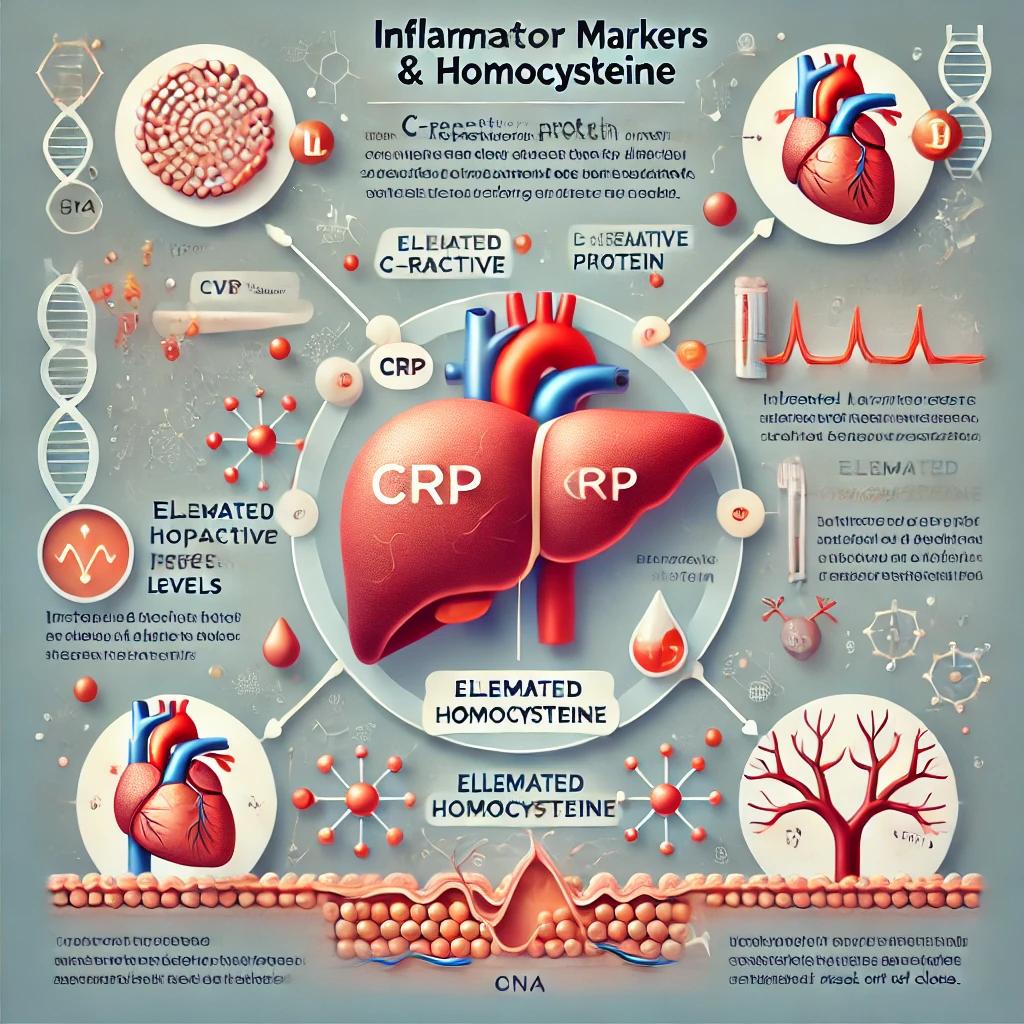Articles

Inflammatory Markers and Homocysteine
Inflammatory Marker: C-Reactive Protein (CRP)
CRP is a protein produced and secreted by liver cells and is one of the most sensitive markers of inflammation, indicating recurrent infections and inflammation.
Where is CRP Found?
CRP is found in small amounts in the blood serum of healthy individuals, but its concentration increases rapidly during periods of inflammation or cell death. A normal CRP level is less than 10 mg/L, considered within the natural range. CRP levels tend to rise in cases of overweight and severe obesity.
Importance of the CRP Test
Research shows that inflammation plays a key role in many chronic diseases, such as cardiovascular disease and type 2 diabetes. CRP is involved in the migration of inflammatory cells to artery walls and blood clot formation, increasing the risk of heart disease.
What is Homocysteine?
Homocysteine is an amino acid naturally found in the blood serum, especially after consuming protein sources like red meat. While it is naturally present, it is not a protein-building amino acid, as it is synthesized in the body.
Importance of the Homocysteine Test
High homocysteine levels can damage artery walls, encouraging blood clotting and potentially increasing the risk of coronary artery disease, heart attacks, blood clots, and strokes. Therefore, the optimal level is below 15 micromoles per liter in blood serum.
Diet's Impact on CRP and Homocysteine Levels
Studies have found that adherence to a Mediterranean diet can reduce inflammatory markers, thus lowering heart disease risk. The Mediterranean diet emphasizes olive oil, vegetables, fruits, plant-based protein, whole grains, legumes, nuts, fish, low-fat dairy products, moderate poultry consumption, and limited red meat intake.
References:
- Srikantiah, Chandrashekara. (2014). C – reactive protein: An inflammatory marker with specific role in physiology, pathology, and diagnosis. Internet Journal of Rheumatology and Clinical Immunology. 2. 10.15305/ijrci/v2iS1/117.
- Glen L. Hortin, MD, PhD, Homocysteine: Clinical Significance and Laboratory Measurement, Laboratory Medicine, Volume 37, Issue 9, September 2006, Pages 551–553, https://doi.org/10.1309/93G5JG1BF44N65BQ
